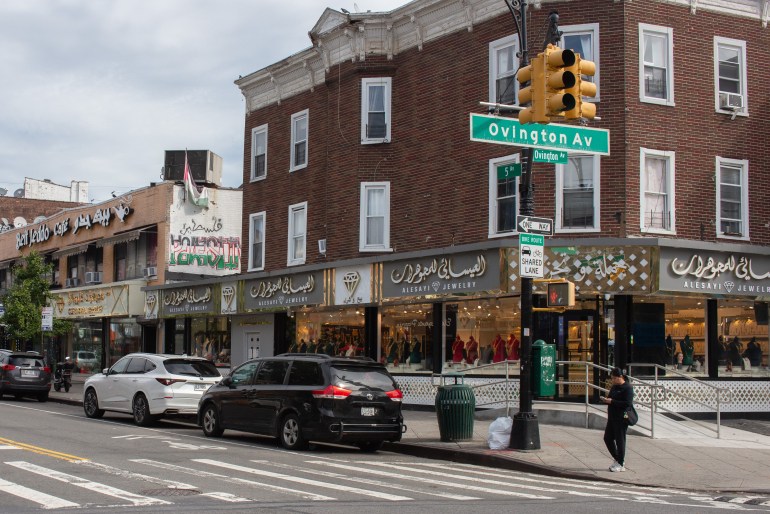Sitting in his office on 5th Avenue in Bay Ridge, Brooklyn, 71-year-old Zein Rimawi’s eyes tear up as he watches a video of Palestinian prisoners being released as part of a ceasefire agreement between Israel and Hamas.
Mamdani’s outspoken support for Palestinian rights and condemnation of the genocide in Gaza has been particularly resonant in the local community, dubbed “Little Palestine”, where cafes bear names like “Al Aqsa Bakery” and “Nablus Sweets”.
Rimawi said he has known Mamdani for about eight years, stretching back to when the then-20-something worked on a campaign in support of Khader El-Yateem, a Palestinian-American Lutheran pastor who launched an unsuccessful bid for New York City Council in 2017.
“I always say to young people: run for any seat. If you win, we win,” he said. “If you lose, we win.”
“Because for a Muslim to run for a seat by itself, it’s not easy, but it matters,” he said. “So it’s a win-win situation.”

But Rimawi also saw Mamdani’s success – at least so far – as the product of a widening wealth gap in the city, an issue particularly relevant in a neighbourhood like Bay Ridge, once a working-class stronghold where housing prices have skyrocketed in recent years.
“When I got married in 1988, one week’s salary would cover the average rent. Now it costs most of your salary for a month,” said Rimawi, who is originally from the occupied West Bank. “The middle class here in New York is disappearing. If it keeps going like this, soon we’ll only have two classes: The rich and the poor.”
Next door, Essa Masoud, 46, runs the Balady Market, selling products from across the Levant.
The Palestinian American, who was born and raised in Bay Ridge, was not surprised to see the Islamophobic tropes pushed by the far right in the wake of Mamdani’s June victory.
Trump has threatened to revoke Mamdani’s citizenship. Cuomo has called him a “terrorist sympathiser”.
Masoud saw those attacks as a carefully calibrated “political tool”.
“It’s an effort to change the understanding of the general public, to make people fear that is not the person they should vote for,” he said.

Masoud added that as a business owner and landlord, he does carry reservations about Mamdani’s policies, including his support for rent freezes and for a $30 hourly minimum wage in the city.
He’s not opposed to Mamdani’s vision, but hopes there “will be balance” if he is elected.
Down the block, Marwa Janini, 34, heads the Arab American Association of New York, which does not endorse any candidate.
For her, the last two years have been defined by two words: pain and pride.
Pain over the atrocities in Gaza and an Islamophobic backlash fuelled in part by the Trump administration. Pride over the success of Mamdani and the message he carries.
“As Muslim New Yorkers, our identities are not fixed; they’re fluid,” she said. “But for someone who grew up in post September 11 New York, with all the fear that created, this is huge.”

“It is a big win for a visibly Muslim woman like myself,” she said, adding that her organisation had been targeted with hate messaging over the last two years, including a death threat pushed under the door.
She hoped Mamdani’s victory could help to dispel some of those prejudices, especially if he shows he will be “mayor for all New Yorkers”.
“To be in a city where we are possibly – inshallah – going to have a Muslim mayor,” she said, “it is a big deal.”
